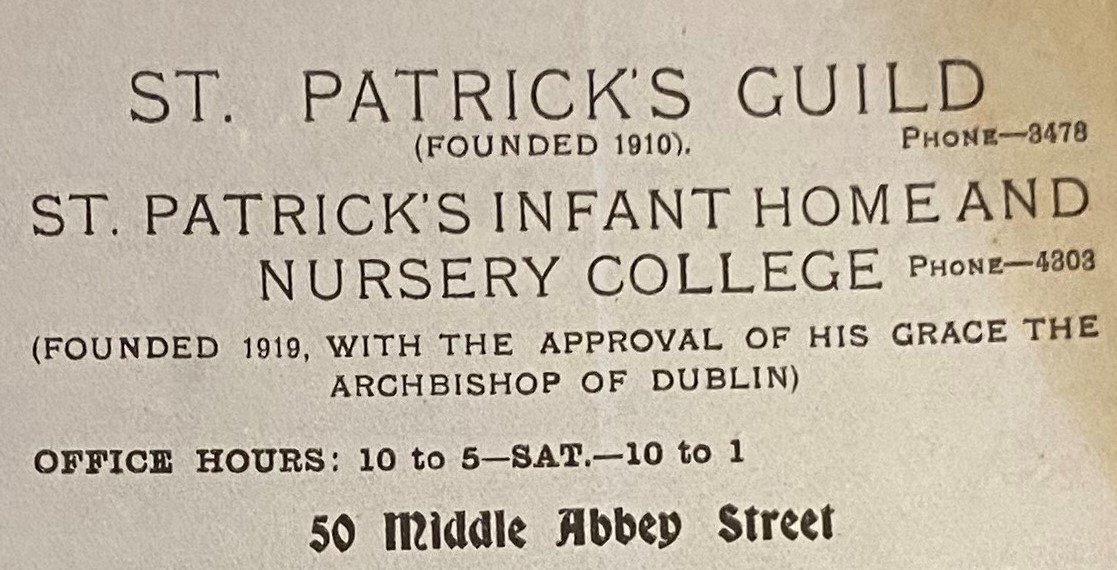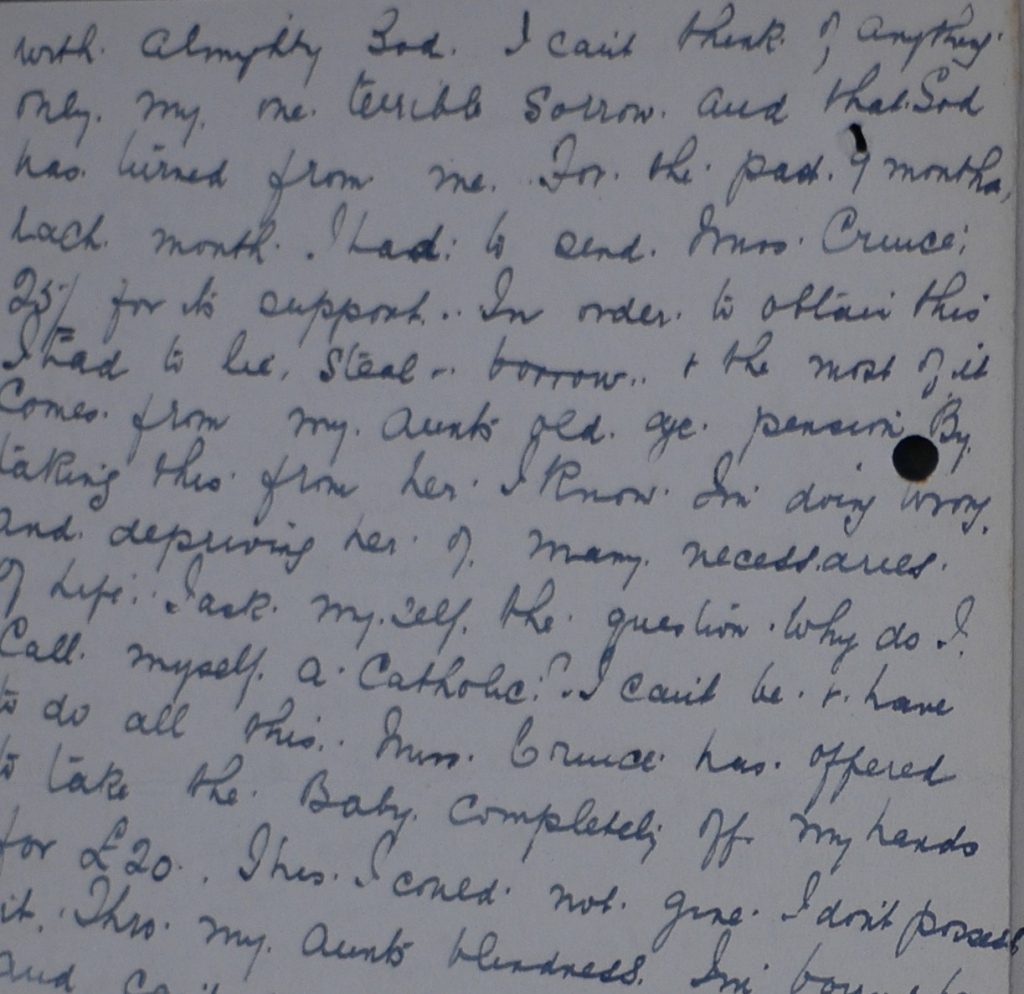Mary M. and Sexual Violence: Ordinary Voices
and the Irish Civil War

Mná100 marks events of January 1923 during the Irish Civil War with a short film presented by Professor Lindsey Earner Byrne. In this film Lindsey Earner-Byrne, Professor of Gender at University College Cork, looks at the topic of violence against women, during the dark days of the Irish Civil War. In this specially created centenary short film, she focuses on a first-hand account – an eight page letter, which she discovered in the Dublin Diocesan Archives in the 1990s, from a Mary M.
Using Mary’s own words, Lindsey Earner-Byrne skilfully examines the deeply moving contents of this letter which reveal that Mary M. was raped. The birth of Mary’s son was a result of that rape. These events led her to write this letter the following year to the Catholic Archbishop of Dublin, Dr Edward Joseph Byrne, requesting the money she needed to have her son adopted, as official adoption was not in place in Ireland until the 1950s.
This video is not suitable for younger viewers and viewer discretion is advised.

You can read the full script with resources here.

Mná100 and Professor Lindsey Earner-Byrne would like to give a special thank you to the Archbishop of Dublin, Dermot Farrell and the Dublin Diocesan Archivist, Noelle Dowling for their support and permissions.
Minister Martin said:
I would like to acknowledge the important work of Professor Earner-Byrne and all of the historians, and custodians of material who help us understand more fully the lives of people who lived during this conflict – civilians, as well as military leaders and politicians. This approach has been a cornerstone of our exploration of the period 1912-1923.
Professor Lindsey Earner invites the reader to review a selection of the work on this topic.
Emerging out of a growing interest in women’s history since the 1970s, historians began to focus on the impact of military/revolutionary violence on women in Ireland from the mid-1990s. In 1995, for example, Sarah Benton explored the impact of militarisation on women in Ireland between 1913 and 1923. This was followed by Louise Ryan’s 2000 analysis of the sexual violence during the War of Independence, 1919-1921.
Throughout the 2000s there was a steady flow of academic articles considering the impact and role of gender and sexual violence. However, during the Decade of Centenaries gender and sexual violence has received growing scholarly attention from historians and sociologists. Mná100’s short film ‘Mary M. and Sexual Violence: Ordinary Voices and the Irish Civil War’ seeks to contribute to this growing body of work by focusing on the voice and lived experience of one woman who was raped in January 1923.
Below is a selection of reading on this topic organised according to the historiographical development of the area:
Sarah Benton, ‘Women disarmed: The militarisation of politics in Ireland, 1913–1923,’ Feminist Review, 50 (1995), pp. 148–72.
Louise Ryan, ‘Drunken Tans: Representations of sex and violence in the Anglo-Irish War, 1919–1921’, Feminist Review, 66 (2000), pp. 73–92.
Robert Lynch, ‘Explaining the Altnaveigh Massacre’, Éire-Ireland, 45: 3-4 (2010), pp. 184–210.
Seán Keating, ‘Sexual crime in the Irish Free State 1922–23: Its nature, extent and reporting,’ Irish Studies Review, 20: 2 (May 2012), pp. 135–55.
Gemma Clark, Everyday Violence in the Irish Civil War (Cambridge University Press, 2014), pp. 154-195.
Marie Coleman, ‘Violence against women during the Irish War of Independence, 1919–1921’ in Diarmaid Ferriter and Susannah Riordan (eds), Years of Turbulence: The Irish Revolution and its Aftermath (Dublin: UCD Press, 2015), pp. 137–56.
Lindsey Earner-Byrne, ‘The rape of Mary M.: A microhistory of sexual violence and moral redemption in 1920s Ireland’, Journal of the History of Sexuality, 21: 1 (2015), pp. 75–98.
Justin Dolan Stover, ‘Families, vulnerability and sexual violence during the Irish Revolution’, in Jennifer Evans and Ciara Meehan (eds), Perceptions of Pregnancy from the Seventeenth to the Twentieth Century, (London: Palgrave, 2017), pp. 57–75.
Linda Connolly, ‘Sexual violence in the Irish Revolution: An inconvenient truth’, History Ireland, 6: 27 (November–December 2019), pp. 34-38.
Andy Bielenberg, ‘Female Fatalities in County Cork during the Irish War of Independence and the Case of Mrs Lindsay’ in Linda Connolly (ed.), Women and the Irish Revolution, (Dublin: Irish Academic Press, 2020), pp. 146-63.
Gemma Clark, ‘Violence against women in the Irish Civil War, 1922–3: Gender-based harm in global perspective’, Irish Historical Studies, 44: 165 (2020), pp. 75–90.
Marie Coleman, ‘Compensation claims and women’s experience of violence and loss in Revolutionary Ireland, 1921-23’ in Linda Connolly (ed.), Women and the Irish Revolution, (Dublin: Irish Academic Press, 2020), pp. 129-147.
Linda Connolly, ‘Hair taking: A weapon of war in Ireland’s War of Independence?’ RTE Brainstorm, February 2020, https://www.rte.ie/ brainstorm/2020/0212/1115001-how-forced-hair-cutting-was-used-as-a-weapon-of-war-in- ireland/ (accessed February 22, 2020)
Linda Connolly, ‘Towards a further understanding of the sexual and gender-based violence women experienced in the Irish Revolution’ in Linda Connolly (ed.), Women and the Irish Revolution, (Dublin: Irish Academic Press, 2020), pp. 103-128.
Linda Connolly, Sexual violence in the Irish Civil War: a forgotten war crime?, Women’s History Review, 30: 1 (2020), pp. 126-143.
Mary McAuliffe, ‘The Homefront as battlefront: Women, violence and the domestic space during war in Ireland, 1919–1921’ in Linda Connolly(ed.), Women and the Irish Revolution, (Dublin: Irish Academic Press, 2020), pp. 164-82.
Susan Byrne, ‘Keeping Company with the enemy’: gender and sexual violence against women during the Irish War of Independence and Civil War, 1919-1923’, Women’s History Review, 30: 1 (2021), pp. 108-125.
Mary McAuliffe, ‘Gendered violence against women: The forcible hair cutting of the Cullen Sisters of Keenaghan, Co. Tyrone, 22 May 1922’ in D. Gannon and F. McGarry (eds), Ireland 1922 (Dublin: Royal Irish Academy, 2022), pp. 136-140.
Ciara Breathnach, Eunan O’Halpin, ‘Sexual assault and fatal violence against women during the Irish War of Independence, 1919–1921: Kate Maher’s murder in context,’ Medical Humanities, 49 (2022), pp. 94-103.